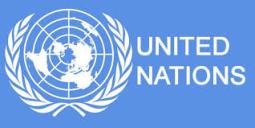Foreign fighters can pose a potential threat to states in numerous ways: at the minimum level, it is likely that, if they return, they will have experienced psychological trauma associated with war and will require health care assistance, rehabilitation, and reintegration type interventions. While abroad, foreign fighters can also pose a threat by attempting to recruit others to join the fight. They can also acquire more advanced terrorist and fighting skillsets and significantly expand their transnational extremist networks. Finally, and at the most extreme level, it is possible that some will have joined Islamic extremist factions whilst fighting abroad and may seek to attack their home countries on return to export their violent ideology of global jihad against the West. Evidence-based research shows that they are more likely to succeed, they are more determined and likely to use more deadly force if they have been abroad for terrorist training or in conflict zones.
In October 2014, ICCT began a project aimed at addressing the challenges posed by the growing number of foreign fighters that travel abroad, in particular to Syria and Iraq, to engage in or otherwise support terrorist activity. The overarching objective of this multi-year project was to assist governments in strengthening and developing an effective rule of law-based response in dealing with foreign terrorist fighters (FTFs) by providing workshops in four countries: Bosnia, Tunisia, Indonesia, and Bulgaria.
The purpose of these workshops was to stimulate dialogue through the analysis of various case studies, comparative analysis, and illustrations of best practices. These workshops were tailored to practitioners and policymakers from different countries to establish methods for appropriately dealing with foreign fighters, mapping good practices and recommendations.
Photocredit: U__Photo/Shutterstock
Highlights
About the project
Format of the Workshops
The workshops – through case studies, comparative analyses and illustrations of best practices – were designed stimulate dialogue and engage with practitioners and policymakers from different countries in working on their comprehensive approach to deal with foreign fighters. The aim of the workshops were four-fold:
- to enhance participants’ understanding of the challenges related to Foreign Terrorist Fighters;
- to stimulate cooperation and dialogue on the variety of tools and actions available to address the Foreign Terrorist Fighter issue
- to lay foundations for increased cooperation with regional and international partners through discussing concrete experiences; and
- to develop best practices and initiate the design and implementation of tailor-made solutions for each participating country.
The focus of the workshops was on best practices and lessons learnt from international, regional, and national approaches that can inform policy development in participants’ country of origin. Through stimulating dialogue, interactive discussions, and action planning, the workshops assisted in deepening participants’ understanding of the complex issues surrounding foreign fighters and contributed to increased international and cross-agency cooperation on the matter.
The project relates to efforts of the Global Counterterrorism Forum (GCTF) and its The Hague-Marrakesh Memorandum on Good Practices for a More Effective Response to the Foreign Fighter Phenomenon and corresponds with the recently adopted UN Security Council Resolution 2178 (2014) on foreign fighters.











